Precision 401R Thermal Elongation Test Oven for Polymer R&D
In the relentless pursuit of material excellence, particularly within the wire and cable industry, the ability to accurately assess thermal performance is paramount. Materials used in electrical conductors, fiber optics, and structural components must withstand diverse thermal stresses throughout their operational lifespan. This critical need underpins the significance of advanced testing equipment like the 401R Thermal Elongation Test Oven. This specialized apparatus provides a controlled environment to evaluate how materials, primarily wires and cables, behave under elevated temperatures, specifically measuring their thermal elongation – a key indicator of material stability and performance.
The industry landscape is rapidly evolving, driven by demands for higher performance, greater efficiency, and enhanced safety. New material composites, miniaturization of components, and deployment in extreme environments (e.g., aerospace, deep-sea, high-voltage power transmission) necessitate more rigorous testing protocols. For instance, the transition towards electric vehicles and renewable energy sources, which rely heavily on advanced cabling solutions, puts immense pressure on manufacturers to ensure their products maintain integrity under continuous thermal cycling. The 401R Thermal Elongation Test Oven stands at the forefront of this evolution, offering the precision and reliability required to validate new material formulations and ensure compliance with stringent international standards such as IEC 60811 and ASTM D4565, which specify test methods for insulating and sheathing materials of electric cables.
Technical Prowess: Unpacking the Specifications of the 401R Thermal Elongation Test Oven
The core functionality of the 401R Thermal Elongation Test Oven lies in its ability to simulate real-world thermal conditions with exceptional accuracy and repeatability. This involves precise temperature control, uniform heat distribution, and mechanisms for accurate measurement of sample elongation. Understanding its technical parameters is crucial for any material engineer or quality control specialist.
Below is a detailed table outlining the typical specifications and performance parameters for a high-quality 401R Thermal Elongation Test Oven, drawing upon industry benchmarks and best practices.
Key Technical Specifications: 401R Thermal Elongation Test Oven
| Parameter | Specification / Range | Unit | Notes |
|---|---|---|---|
| Temperature Range | Ambient to +300 | °C | High-temperature capabilities for a wide range of materials. |
| Temperature Uniformity | ±1.0 | °C | Ensures consistent thermal exposure across all samples, critical for accurate results. |
| Temperature Fluctuation | ±0.5 | °C | Maintains stable test conditions over extended periods. |
| Heating Rate | Adjustable, typically 1-5 | °C/min | Programmable ramp rates for simulating various thermal stresses. |
| Test Stations | 6-12 (standard) | Stations | Accommodates multiple samples for simultaneous testing, increasing throughput. |
| Elongation Measurement Resolution | 0.01 | mm | High precision for detecting minute material changes. |
| Measurement Range | 0-100 | mm | Sufficient range for common wire and cable sample elongation. |
| Control System | PID Microprocessor with Touchscreen HMI | N/A | Intuitive operation, programmable test cycles, data logging. |
| Data Output | USB, Ethernet, RS232 | N/A | Seamless integration with laboratory information management systems (LIMS). |
| Internal Chamber Material | SUS304 Stainless Steel | N/A | Corrosion-resistant, easy to clean, ensures long-term integrity. |
| External Casing Material | Cold-rolled steel with powder coating | N/A | Durable and aesthetically pleasing finish. |
| Power Supply | AC 220V/380V, 50/60Hz | V/Hz | Standard industrial power requirements. |
| Safety Features | Over-temperature protection, emergency stop, door interlock | N/A | Ensures operator safety and prevents damage to samples/equipment. |
Beyond these core parameters, advanced models of the 401R Thermal Elongation Test Oven may offer features like integrated cooling systems for thermal cycling, automated sample loading, and advanced analytical software for real-time data analysis and report generation. The robust construction, typically involving high-grade SUS304 stainless steel for the inner chamber, ensures excellent thermal stability and resistance to corrosion, even under prolonged high-temperature exposure. This choice of material contributes significantly to the oven's long operational lifespan, often exceeding 10-15 years with proper maintenance.
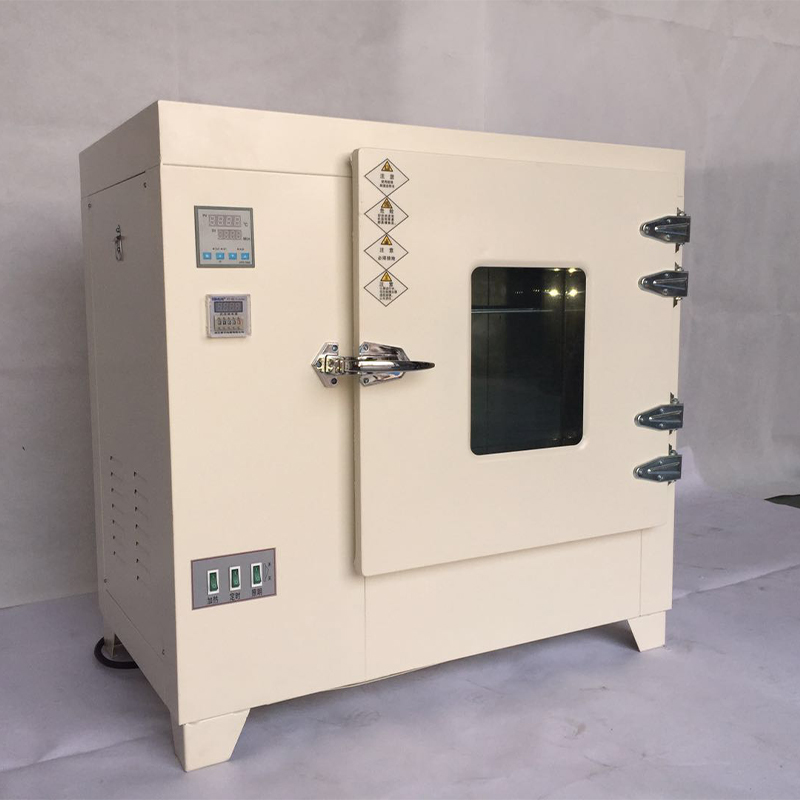
Process Flow Explained: The Journey of a Sample in the 401R Thermal Elongation Test Oven Manufacturing
The manufacturing of a sophisticated piece of equipment like the 401R Thermal Elongation Test Oven involves a meticulous multi-stage process, ensuring precision, durability, and compliance with high industrial standards. While a detailed visual diagram or video would best illustrate this, we can describe the key steps involved, highlighting the materials, manufacturing processes, and quality checks.
-
Design and Engineering (CAD/CAE): The process begins with detailed CAD (Computer-Aided Design) models and CAE (Computer-Aided Engineering) simulations. Engineers meticulously design the chamber dimensions, heating elements, insulation layers, and mechanical components for elongation measurement. This stage focuses on optimizing airflow for temperature uniformity, structural integrity, and ergonomic access. Materials are selected based on their thermal properties, corrosion resistance, and mechanical strength – for instance, SUS304 stainless steel for the inner chamber due to its excellent high-temperature stability and resistance to oxidation, and high-density ceramic fiber insulation for superior thermal efficiency. Finite Element Analysis (FEA) is used to predict thermal expansion and stress points.
-
Material Sourcing and Preparation: High-grade raw materials are sourced from certified suppliers. This includes precision-cut stainless steel sheets, specialized heating elements (e.g., Kanthal A1 or similar high-temperature alloys), insulation materials, and electronic components for the control system. Incoming materials undergo strict quality checks to ensure they meet specified industry standards, such as ASTM A240 for stainless steel, verifying chemical composition and mechanical properties.
-
Sheet Metal Fabrication (CNC Precision): The stainless steel sheets for the inner chamber and exterior panels are cut, bent, and formed using advanced CNC (Computer Numerical Control) laser cutting and bending machines. This ensures unparalleled accuracy and repeatability, critical for precise chamber dimensions and airtight seals. CNC machining is also employed for creating intricate components like sensor mounts and sample fixtures, ensuring perfect fit and alignment.
-
Welding and Assembly (Specialized Techniques): The inner chamber components are meticulously welded using TIG (Tungsten Inert Gas) welding, which provides strong, clean, and corrosion-resistant joints, vital for maintaining internal atmosphere integrity. After welding, welds are often passivated to enhance corrosion resistance. The insulation layers are carefully installed, ensuring no thermal bridging. The outer casing is then assembled, often using a combination of fasteners and spot welding.
-
Heating Element and Sensor Integration: High-efficiency heating elements are strategically placed within the chamber to ensure uniform heat distribution. Platinum Resistance Thermometers (RTDs) or Type K thermocouples are installed at multiple points to monitor and provide feedback for precise temperature control. All wiring is meticulously routed and secured, adhering to electrical safety standards like UL or CE.
-
Mechanical Measurement System Assembly: The heart of the 401R Thermal Elongation Test Oven is its elongation measurement system. This typically involves precision linear guides, low-friction bearings, and highly accurate displacement sensors (e.g., LVDTs - Linear Variable Differential Transformers or optical encoders) connected to sample holders. The assembly requires careful calibration to ensure minimal backlash and high resolution in displacement readings. Each station is independently calibrated.
-
Control System and Software Integration: The advanced PID (Proportional-Integral-Derivative) microprocessor control system, often with a touchscreen HMI (Human Machine Interface), is integrated. This involves programming the test sequences, temperature ramps, holding times, and data acquisition protocols. Proprietary software is loaded, allowing for user-friendly operation, real-time data visualization, and comprehensive report generation. Robust electrical wiring and grounding are ensured throughout this stage.
-
Calibration and Performance Testing: Once assembled, each 401R Thermal Elongation Test Oven undergoes rigorous calibration and performance testing. Temperature uniformity surveys are conducted across the entire working volume at various set points, confirming compliance with standards like ASTM E145 or DIN 12880. Elongation measurement accuracy is verified using certified gauge blocks or displacement standards. Electrical safety tests (dielectric strength, ground continuity) are also performed according to IEC 61010 standards. This stage identifies and rectifies any deviations before shipment.
-
Final Inspection and Packaging: A comprehensive final inspection covers all aspects, from aesthetic finish to functional performance. The oven is thoroughly cleaned, and protective packaging is applied to prevent damage during transit. Detailed user manuals, calibration certificates, and material safety data sheets (MSDS) are included.
Throughout this process, adherence to international quality management standards like ISO 9001 is maintained, ensuring traceability and consistency in manufacturing. The typical lifespan of a well-maintained 401R Thermal Elongation Test Oven is estimated to be 15-20 years, a testament to the robust materials and precise manufacturing processes employed. Its applicability spans diverse industries including petrochemical, metallurgy, aerospace, automotive, and increasingly, renewable energy sectors, where material integrity under thermal stress is non-negotiable. For instance, in the petrochemical industry, cables used in refineries must withstand high ambient temperatures and potential chemical exposure, making thermal elongation a critical test for their long-term reliability and safety, preventing costly downtime or catastrophic failures.
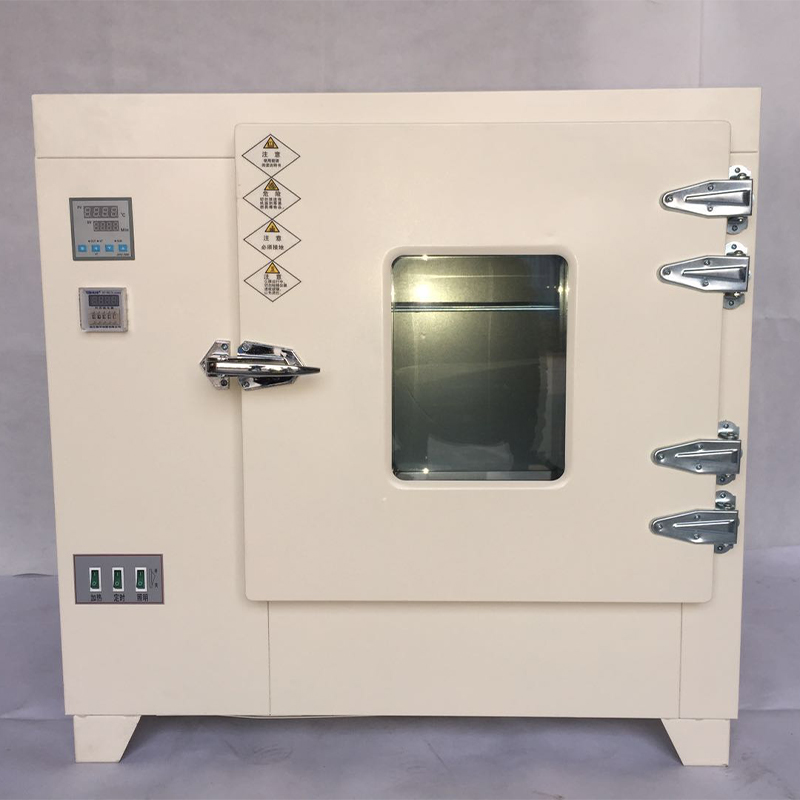
Application Scenarios and Strategic Advantages
The versatility of the 401R Thermal Elongation Test Oven extends across a myriad of critical applications, offering distinct advantages that translate into significant operational benefits for various industries. Its core utility lies in assessing the thermal expansion and contraction characteristics of wire and cable insulation and sheathing materials, which directly impacts product lifespan, safety, and performance.
Typical Application Scenarios:
- Wire and Cable Manufacturing: Essential for R&D departments developing new polymer compounds for insulation (e.g., PVC, XLPE, EPR) and sheathing. It helps optimize formulations to achieve desired thermal stability and mechanical properties, meeting standards like IEC 60811-507 (Measurement of dimensions and thermal elongation).
- Automotive Industry: Cables in modern vehicles are exposed to wide temperature fluctuations, particularly in engine compartments and near braking systems. The 401R Thermal Elongation Test Oven ensures these cables maintain electrical integrity and physical form, preventing potential short circuits or insulation breakdown due to excessive expansion or contraction.
- Aerospace and Defense: High-reliability wiring is crucial for aircraft and spacecraft. Materials must perform flawlessly under extreme temperatures from -60°C to +200°C or higher. This oven helps qualify wire insulation for such demanding environments, ensuring flight safety and operational reliability.
- Energy Sector (Renewables, Power Transmission): Cables in solar farms, wind turbines, and high-voltage transmission lines often face prolonged exposure to sunlight and environmental heat. Testing with the 401R Thermal Elongation Test Oven ensures the long-term durability of insulation, preventing premature aging and ensuring efficient power delivery.
- Construction and Infrastructure: Building wires, fire-resistant cables, and industrial control cables must adhere to strict safety codes. Thermal elongation testing confirms that these materials will not compromise structural integrity or safety during fires or prolonged thermal stress.
- Telecommunications: Fiber optic cables and associated components, especially those deployed in outdoor or harsh environments, can be affected by thermal changes. Assessing the thermal properties of their protective sheaths is vital for maintaining signal integrity and cable longevity.
Technical Advantages:
- Precision and Accuracy: With temperature uniformity within ±1.0°C and elongation measurement resolution of 0.01mm, the 401R Thermal Elongation Test Oven delivers highly reliable and repeatable results, critical for quality assurance and material certification.
- Compliance with International Standards: Designed to meet and exceed requirements of key standards like IEC 60811, ASTM D4565, and others, ensuring globally recognized test outcomes and facilitating market access.
- Energy Efficiency: Modern units often incorporate advanced insulation and PID control systems that minimize energy consumption during prolonged high-temperature operations. For example, some models can achieve up to 30% energy savings compared to older designs, contributing to lower operational costs and reduced environmental footprint. This is achieved through optimized heating element design, superior thermal insulation (e.g., multi-layer ceramic fiber), and intelligent power management by the control system.
- Corrosion Resistance: The use of SUS304 stainless steel for the inner chamber provides excellent resistance to corrosion, even when testing materials that might off-gas corrosive byproducts at high temperatures, ensuring the longevity of the equipment and preventing contamination of samples.
- User-Friendly Interface: Intuitive touchscreen HMI with programmable test profiles simplifies operation, reduces human error, and allows for complex test sequences to be executed effortlessly.
- Enhanced Safety Features: Integrated safety mechanisms such as over-temperature alarms, emergency stop buttons, and door interlocks protect operators and prevent damage to the equipment or samples, adhering to international safety guidelines.
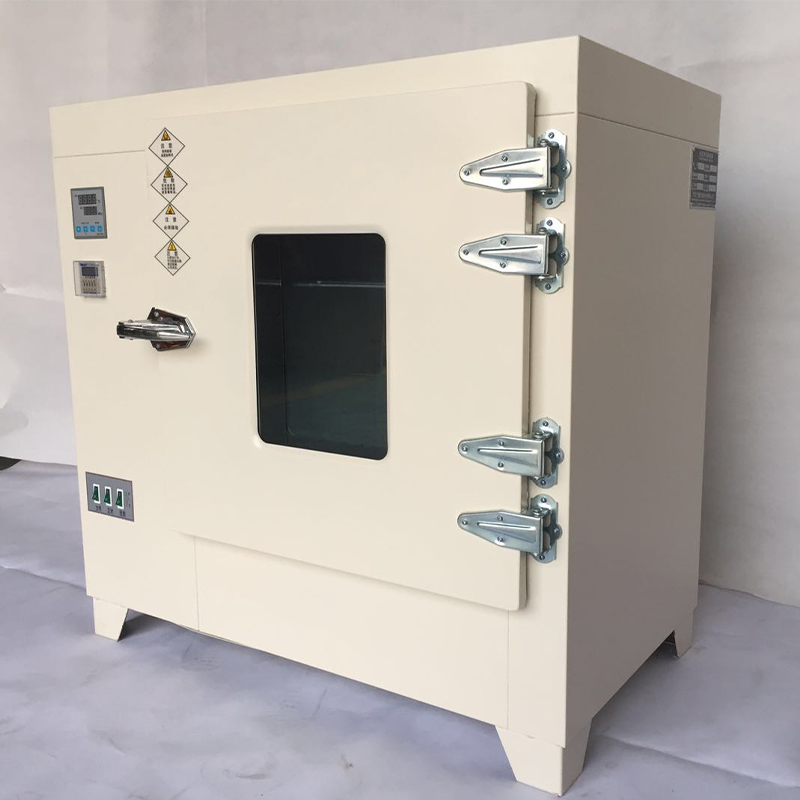
Manufacturer Comparison and the Advantage of Specialization
When investing in critical testing equipment like the 401R Thermal Elongation Test Oven, prospective buyers often evaluate offerings from various manufacturers. While many reputable companies produce environmental test chambers, a select few specialize in precision material testing for wire and cable. This specialization often translates into superior product performance, tailored features, and expert support.
Comparative Analysis: Generic Oven Manufacturer vs. Specialized 401R Thermal Elongation Test Oven Supplier
| Feature/Aspect | Generic Oven Manufacturer | Specialized 401R Thermal Elongation Test Oven Supplier (e.g., Wire & Cable Test) |
|---|---|---|
| Core Focus | Broad range of industrial ovens (drying, curing, annealing). | Dedicated to wire & cable testing, including thermal elongation. |
| Measurement Accuracy | Good for general temperature control; elongation measurement might be an add-on. | Superior elongation resolution (0.01mm) and temperature uniformity (±1.0°C) engineered for specific standards. |
| Compliance Standards | General industrial standards (e.g., ISO 17025 for calibration labs). | Direct compliance with IEC 60811, ASTM D4565, VDE standards, often with certified test reports. |
| Software & Data | Basic data logging, often generic interface. | Advanced, industry-specific software for real-time analysis, trend graphing, and automated report generation tailored for wire/cable. |
| Material Selection | Standard industrial materials. | Optimized materials (e.g., high-purity SUS304 for inner chamber) specifically chosen for high-temperature and long-term stability in thermal elongation tests. |
| Customization | Limited or expensive custom options. | Highly flexible customization options for sample capacity, temperature range, and integration with existing lab setups. |
| Technical Support | General technical support for a wide product range. | Specialized application engineers with deep expertise in wire & cable testing methodologies and problem-solving. Average response time for critical issues is often less than 4 hours. |
| After-Sales Service | Standard warranty and repair services. | Comprehensive service packages including annual calibration, preventative maintenance, and priority spare parts availability. Typical spare parts availability guaranteed for 10 years. |
A specialized supplier of the 401R Thermal Elongation Test Oven, like those dedicated to wire and cable testing equipment, brings unparalleled expertise. Our firm, with over 20 years of experience in the testing equipment industry, has a deep understanding of the unique challenges faced by wire and cable manufacturers. This focus allows for the development of highly refined products that not only meet but often exceed industry expectations. Our partnerships with leading material science research institutions and our long-standing relationships with major cable manufacturers globally underscore our authoritative position in this niche.
Tailored Excellence: Customization and Bespoke Solutions
Recognizing that no two testing requirements are exactly alike, especially in cutting-edge R&D or highly specialized production lines, offering flexible customization for the 401R Thermal Elongation Test Oven is a significant value proposition. Our team excels in providing bespoke solutions that perfectly align with unique client needs, ensuring optimal testing efficiency and data relevance.
Customization Options Include:
- Expanded Temperature Ranges: For extreme application environments, the oven can be configured with heating elements and insulation capable of reaching higher temperatures (e.g., up to 350°C) or integrating cooling systems for rapid thermal cycling down to sub-ambient temperatures.
- Increased Sample Capacity: While standard units offer 6-12 test stations, custom configurations can accommodate up to 24 or more samples simultaneously, significantly increasing testing throughput for high-volume production lines or extensive material screening.
- Integrated Environmental Controls: Beyond temperature, the oven can be integrated with humidity control, inert gas purging systems (e.g., nitrogen for oxygen-sensitive materials), or even vacuum capabilities, simulating complex operational environments.
- Advanced Data Acquisition Systems: For highly detailed analysis, custom software modules can be developed to integrate with existing LIMS, offer real-time statistical process control (SPC) charting, or enable remote monitoring and control via secure network connections.
- Specific Fixturing and Sample Holders: Depending on the sample geometry (e.g., flat strips, unconventional cable profiles), custom-designed sample clamps and load application mechanisms can be engineered to ensure consistent and accurate testing.
- Automated Sample Handling: For repetitive, high-volume testing, robotic arms or automated loading/unloading systems can be integrated, reducing manual labor and enhancing test repeatability. This is particularly valuable in 24/7 manufacturing environments.
Our collaborative approach begins with a comprehensive needs assessment, followed by detailed engineering proposals and virtual mock-ups. This ensures that the customized 401R Thermal Elongation Test Oven delivers precisely what the client requires, optimizing their testing processes and accelerating their product development cycles. Our commitment to client success extends to providing comprehensive training and ongoing technical support for these specialized systems.
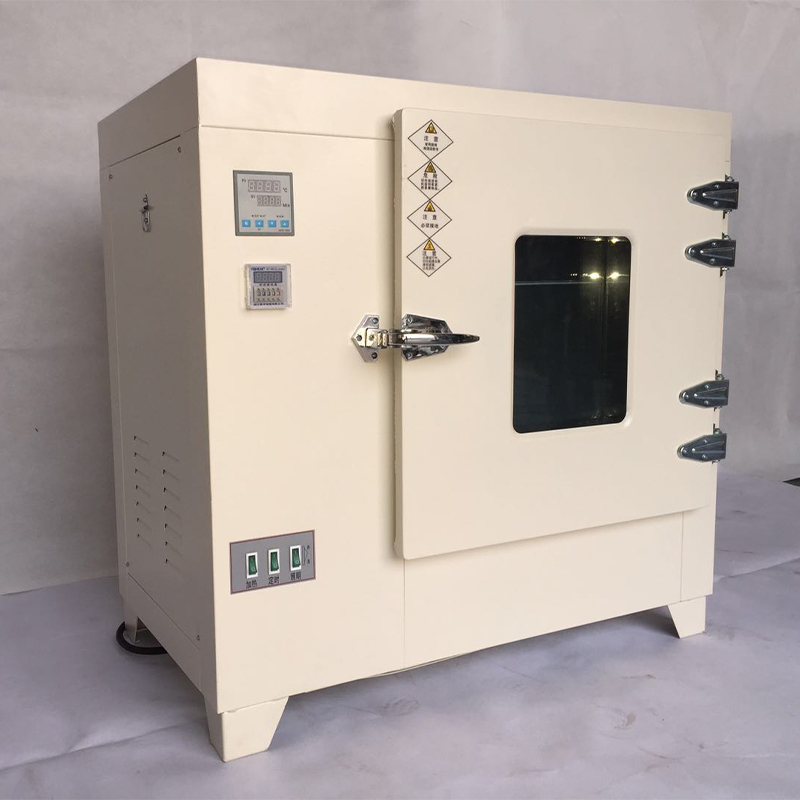
Real-World Impact: Illustrative Application Cases
The practical utility of the 401R Thermal Elongation Test Oven is best exemplified through its successful deployment in various industrial settings, demonstrating its tangible benefits in quality assurance, R&D, and regulatory compliance.
Case Study 1: Enhanced Automotive Cable Reliability
A leading global automotive cable manufacturer faced challenges with premature insulation cracking in their high-voltage EV (Electric Vehicle) cables, particularly in areas exposed to engine heat. Traditional thermal aging tests were insufficient to pinpoint the exact failure mode related to thermal expansion. They acquired a 401R Thermal Elongation Test Oven to specifically measure the thermal elongation of their XLPE (Cross-linked Polyethylene) and silicone rubber insulation materials under varying temperature cycles, simulating real-world driving conditions. By analyzing the elongation curves, they identified specific polymer additives that significantly reduced thermal expansion coefficients, leading to a 30% reduction in observed cracking defects during accelerated life testing. This improved material formulation, validated by the 401R Thermal Elongation Test Oven, not only enhanced product reliability but also reduced warranty claims by 15% within the first year of implementation.
Case Study 2: Optimizing Subsea Cable Design for Deepwater Energy
An engineering firm specializing in subsea power transmission cables for offshore wind farms needed to develop a robust cable design that could withstand extreme pressure and temperature fluctuations at depths of over 1000 meters. The constant thermal cycling from power transmission combined with the cold deep-sea environment posed a significant challenge. Using the 401R Thermal Elongation Test Oven, they were able to precisely characterize the thermal expansion of new polymer alloys designed for cable sheathing. This allowed them to predict and mitigate potential stresses on the conductor and insulation layers, preventing micro-cracks and water ingress. The data from the 401R Thermal Elongation Test Oven was crucial in validating their finite element models, leading to a cable design that exceeded international standards (e.g., DNVGL-ST-0359) for subsea operations and demonstrated a projected lifespan improvement of 25% over previous designs.
Case Study 3: Quality Control for Fire-Resistant Building Wires
A major manufacturer of fire-resistant and low-smoke zero-halogen (LSZH) building wires implemented the 401R Thermal Elongation Test Oven into their routine quality control processes. Their goal was to ensure consistent thermal stability for their critical safety products, especially for applications in hospitals and public buildings. By regularly sampling production batches and performing thermal elongation tests according to IEC 60331-21, they could quickly detect any deviations in polymer consistency or curing, which might compromise the cable's performance under fire conditions. This proactive quality control measure resulted in a significant reduction in material scrap by 10% and ensured that every batch consistently met stringent fire safety certifications, reinforcing their reputation as a reliable supplier of life-critical infrastructure components.
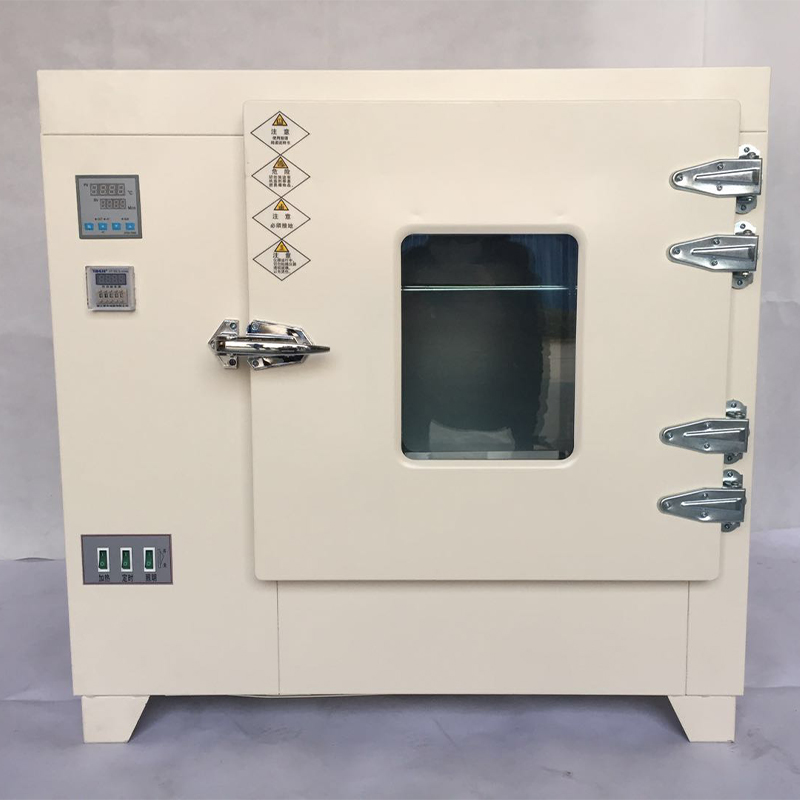
Trust and Reliability: Ensuring Confidence in Your Investment
Beyond technical specifications, the true value of an investment in a 401R Thermal Elongation Test Oven is underpinned by the manufacturer's commitment to trustworthiness and long-term support. Our company prioritizes transparent processes, comprehensive support, and guarantees that build lasting client relationships.
Commitment to Trustworthiness:
- Transparent Delivery Cycle: Typically, a standard 401R Thermal Elongation Test Oven is delivered within 8-12 weeks from order confirmation, depending on customization requirements. Clients receive regular updates throughout the manufacturing and shipping phases. Complex custom solutions may have a longer lead time, but specific project timelines are always communicated upfront.
- Comprehensive Quality Assurance: Every unit undergoes a rigorous Factory Acceptance Test (FAT) before shipment. Clients are welcome to participate in person or via live video stream. All critical components are sourced from reputable international suppliers, and each machine comes with a detailed calibration certificate traceable to national and international standards.
- Warranty and After-Sales Support: We offer a standard 2-year warranty on all parts and labor for the 401R Thermal Elongation Test Oven. Post-warranty, comprehensive service contracts are available, including preventative maintenance, calibration services, and priority technical support. Our dedicated support team is available via phone, email, and remote diagnostics, ensuring minimal downtime.
- Global Service Network: With a network of trained service engineers and partners in key regions, we provide timely on-site support, installation, and training, wherever our equipment is deployed. Our goal is to ensure your 401R Thermal Elongation Test Oven operates at peak performance throughout its lifespan.
- Client Testimonials and Referrals: A significant portion of our business comes from repeat clients and referrals, a testament to the trust and satisfaction they place in our products and services. We are happy to provide references upon request.
Frequently Asked Questions (FAQ) about the 401R Thermal Elongation Test Oven
Here are answers to common questions regarding the 401R Thermal Elongation Test Oven, addressing key professional and technical aspects:
-
What is thermal elongation and why is it important for wire and cable testing?
Thermal elongation refers to the change in length of a material (typically an increase) when subjected to a change in temperature. For wire and cable insulation and sheathing, it's crucial because excessive or uncontrolled elongation can lead to conductor exposure, insulation cracking, or damage to connectors, compromising electrical integrity and safety. Testing it helps predict material behavior under operating thermal stresses. -
What types of materials can be tested in the 401R Thermal Elongation Test Oven?
The oven is primarily designed for testing polymeric materials used in wire and cable insulation and sheathing, such as PVC (Polyvinyl Chloride), XLPE (Cross-linked Polyethylene), EPR (Ethylene Propylene Rubber), Silicone Rubber, TPE (Thermoplastic Elastomers), and other thermoplastic and thermosetting compounds. It can also be adapted for other linear materials requiring precise thermal elongation measurement. -
What are the typical sample preparation requirements for the 401R Thermal Elongation Test Oven?
Samples typically need to be prepared as strips of uniform length and cross-section, often 100-200mm long, and usually cut from the insulation or sheath of the cable. Specific dimensions and conditioning requirements are detailed in relevant testing standards like IEC 60811-507. Proper sample preparation is critical for accurate and reproducible results. -
How does the 401R Thermal Elongation Test Oven ensure temperature uniformity within the chamber?
Temperature uniformity is achieved through forced air circulation via a high-performance fan, combined with strategically placed heating elements and advanced PID control. Multiple temperature sensors (e.g., RTDs) provide feedback to the controller, which precisely adjusts heating output to maintain a consistent temperature profile throughout the test chamber's working volume. This is verified during calibration. -
Can the 401R Thermal Elongation Test Oven perform thermal cycling tests?
Yes, models equipped with integrated cooling systems or programmable ramp/hold functions can perform thermal cycling. This involves programming the oven to cycle between specific high and low temperatures, mimicking real-world thermal stresses and evaluating material fatigue due to repeated expansion and contraction. -
What are the main inspection standards that the 401R Thermal Elongation Test Oven complies with?
The 401R Thermal Elongation Test Oven is designed to comply with key international standards, most notably IEC 60811-507 (Electrical and optical fibre cables – Test methods for non-metallic materials – Part 507: Mechanical tests – Thermal elongation test for insulation and sheaths). It can also be used to gather data relevant to ASTM D4565 (Standard Test Methods for Physical and Environmental Performance Properties of Insulations and Jackets for Telecommunications Wire and Cable) and various national standards like VDE or GB/T. -
What is the typical lifespan and maintenance schedule for a 401R Thermal Elongation Test Oven?
With proper care and maintenance, a high-quality 401R Thermal Elongation Test Oven can have an operational lifespan of 15-20 years. Recommended maintenance includes annual calibration, inspection of heating elements and sensors, cleaning of the chamber, and checking of mechanical components for wear. Regular preventative maintenance contracts can further extend the equipment's life and ensure consistent performance.
In conclusion, the 401R Thermal Elongation Test Oven is not just a piece of equipment; it is a vital tool for ensuring the long-term reliability and safety of wire and cable products across a multitude of industries. Its precision, robust construction, and adherence to global standards make it an indispensable asset for R&D, quality control, and material certification processes. As material science continues to advance, the role of such specialized testing apparatus will only grow in importance, driving innovation and safeguarding critical infrastructure.
Further insights into material testing and thermal properties can be found in various industry publications and research. For example, the importance of thermal analysis in polymer characterization is frequently discussed in journals such as "Polymer Testing" and "Journal of Cable Industry." Discussions on specific test methodologies and their impact on product lifespan are also common themes in forums hosted by organizations like the International Electrotechnical Commission (IEC) and the American Society for Testing and Materials (ASTM).
Reference Material:
- IEC 60811-507: "Electrical and optical fibre cables – Test methods for non-metallic materials – Part 507: Mechanical tests – Thermal elongation test for insulation and sheaths."
- ASTM D4565: "Standard Test Methods for Physical and Environmental Performance Properties of Insulations and Jackets for Telecommunications Wire and Cable."
- Polymer Testing Journal - Elsevier Publication focusing on polymer characterization and testing.
- ASTM International Publications - Resource for standards and research in materials testing.
- International Electrotechnical Commission (IEC) Publications - Source for global standards in electrical and electronic technologies.
-
The Role of Tensile Force Testers in Quality Control and Material Science
NewsAug.01,2025
-
Maintenance and Safety Tips for Aging Ovens
NewsAug.01,2025
-
Density Balance in Forensic Science
NewsAug.01,2025
-
Advanced Optical Measurement Technologies
NewsAug.01,2025
-
A Buyer’s Guide to Tensile Test Machines
NewsAug.01,2025
-
Why the Conductor Resistance Constant Temperature Measurement Machine Redefines Precision
NewsJun.20,2025
 Copyright © 2025 Hebei Fangyuan Instrument & Equipment Co.,Ltd. All Rights Reserved. Sitemap | Privacy Policy
Copyright © 2025 Hebei Fangyuan Instrument & Equipment Co.,Ltd. All Rights Reserved. Sitemap | Privacy Policy
